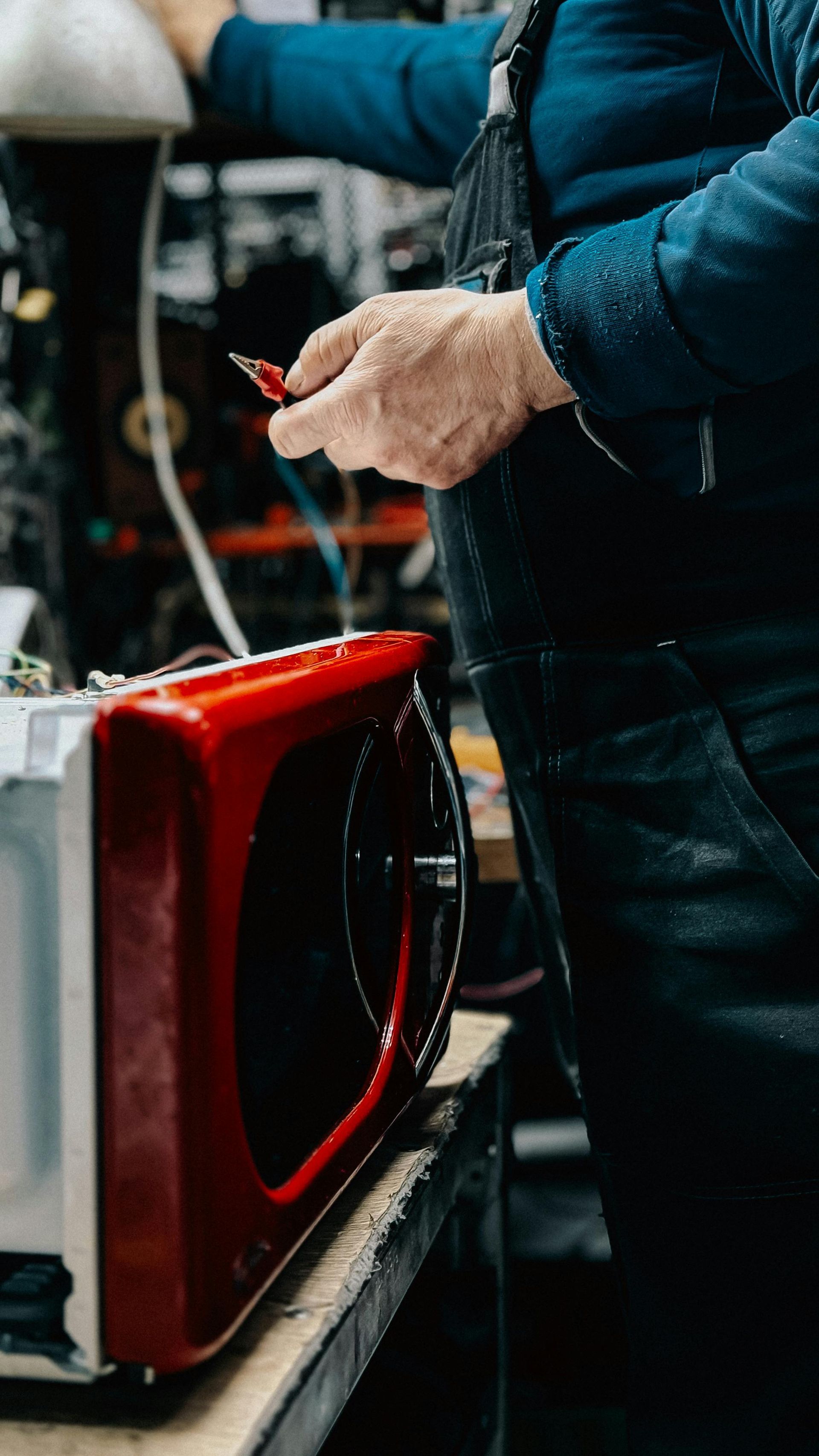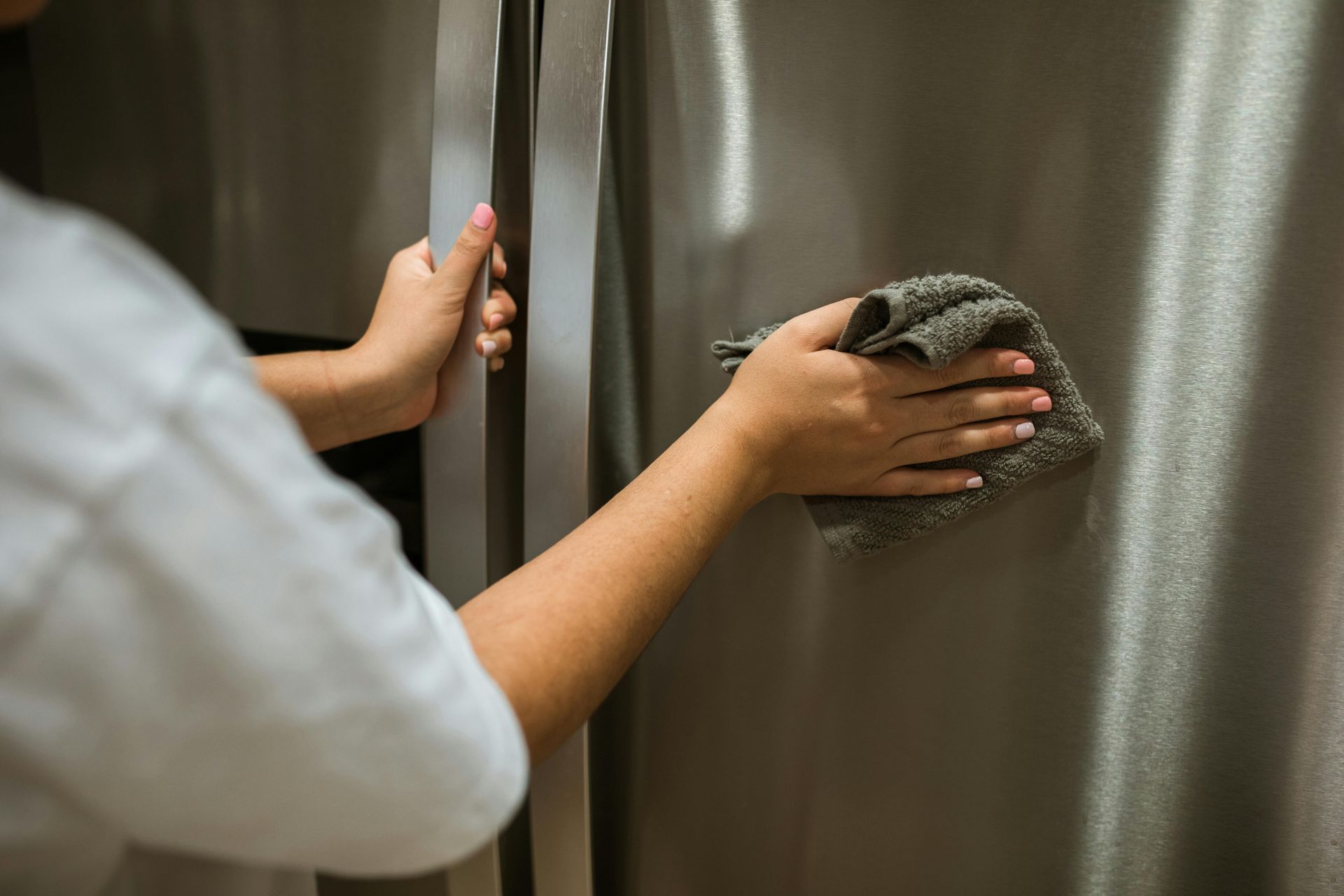Signs Your Dryer Needs Servicing Before It Breaks Down
If your dryer’s taking forever to dry clothes, making weird noises, or leaving them too hot or damp, it’s calling for some emergency repair. A drum that won’t spin right, a burning smell, or shutting off mid-cycle are big red flags you can’t ignore. Don’t forget about lint buildup—it’s a silent troublemaker that can cause fires or pricey repairs. Keep an eye out for these signs, and you’ll avoid a costly dryer repair.
Key Takeaways
- Dryer takes longer than usual to dry clothes, indicating airflow or sensor problems.
- Unusual noises like thumping, squealing, or grinding suggest mechanical issues needing attention.
- Dryer drum not spinning properly signals belt, roller, or pulley wear requiring servicing.
- Persistent burning smell or overheating poses fire risks and demands immediate professional help.
- Excessive lint buildup around vents causes poor airflow and increased fire hazard risk.
Dryer Takes Longer Than Usual to Dry Clothes
If your dryer is taking forever to dry your clothes, it’s a clear sign something’s up. You might think it’s just a quirk, but often, it means your dryer’s moisture sensor isn’t working right or there are airflow issues. That moisture sensor usually tells the dryer when your clothes are dry, so if it’s off, the machine keeps running longer than needed. Plus, airflow issues—like lint clogging the vent—can trap heat and slow drying time. You’re not alone in this; many of us face these hiccups, and it’s a good idea to get it checked before it turns into a bigger headache. Fixing these problems not only saves you time but also energy, so you’re doing your part for your wallet and the planet.
Clothes Come Out Excessively Hot or Damp
If your clothes are coming out way hotter than they should or still damp, your dryer might be sending you some not-so-subtle hints. Overheating can cause damage, and incomplete drying means you’re wasting energy (and time). Let’s figure out why your dryer’s acting up before it turns into a full-blown laundry disaster.
Overheating Risks
When your dryer starts sending clothes out feeling like they just survived a sauna—or worse, still damp—it’s a clear sign something’s off. Overheating causes can sneak up on you, like a clogged vent or a faulty thermostat. These issues not only make your dryer less efficient but also turn it into a mini heat wave generator, risking damage or even fire. You don’t want your laundry day to double as a science experiment, right? Overheating prevention is all about regular check-ups and cleaning. Keep those vents clear, and listen for weird noises or smells. Trust me, staying on top of it keeps your dryer—and your clothes—happy, safe, and ready for whatever your busy life throws at them.
Incomplete Drying Causes
Overheating is a big red flag, but another sign your dryer needs some TLC is when your clothes come out either way too hot or still damp. This can be super frustrating, especially when you expect fresh, warm laundry.
Here’s what might be going on:
- Inadequate airflow: Lint buildup or blocked vents can trap heat and moisture, leaving clothes damp or overheated.
- Faulty thermostat: If the thermostat’s off, your dryer can’t regulate temperature properly.
- Clogged lint filter: It restricts airflow, causing uneven drying and extra heat.
- Overloading: Stuffing too many clothes in at once means less space for hot air to circulate.
Energy Efficiency Impact
Even though your dryer might seem like it’s just doing its job, it can actually gobble up a lot more energy than you think, especially when your clothes come out soaking wet or burning hot. When your dryer struggles, it uses extra energy, hiking up your bills and wasting power. You mightn't notice at first, but inefficient drying means your machine’s working overtime. A quick fix? Follow simple maintenance tips like cleaning the lint filter regularly and checking the vent for blockages. These small steps keep your dryer running smoothly and cut down on energy consumption. Think of it as giving your dryer a little TLC so it doesn’t turn laundry day into an energy-sucking marathon.
Unusual Noises During Operation
If your dryer starts making weird noises, it’s a good sign something’s off inside. You might think it’s just an unbalanced load, but sometimes those sounds hint at bigger issues. Ignoring them won’t make things better, and your dryer could quit when you least expect it.
Here’s what to watch for:
- Thumping or banging, which can mean an unbalanced load or a faulty belt.
- Squealing or squeaking, often caused by worn-out rollers or a loose belt.
- Grinding sounds, suggesting something like a damaged drum bearing.
- Rattling noises, which could be loose parts or foreign objects stuck inside.
You’re part of a community that knows the value of a well-running dryer. Catching these noises early keeps your laundry routine smooth and stress-free. Don’t let a noisy dryer isolate you — get it checked and keep your home humming happily.
Dryer Drum Does Not Spin Properly
If your dryer drum isn’t spinning right, it’s like it’s stuck in slow motion or doing a jerky dance. You’ll notice it might sound off or even stop moving smoothly, which means something’s up inside. Don’t ignore it—your dryer’s trying to tell you it needs a little TLC before things get worse.
Drum Movement Issues
When your dryer drum doesn’t spin like it should, laundry day suddenly feels like a bigger chore. You might notice your clothes aren’t drying evenly or the drum feels stuck. These drum movement issues often come down to a few common culprits. Watch out for:
- Poor drum alignment that throws off the smooth spin
- Belt wear that causes slipping or stops the drum entirely
- Worn rollers or glides making it hard for the drum to turn
- A faulty idler pulley that can’t keep tension on the belt
If you spot any of these signs, don’t just grin and bear it. Getting your dryer checked now saves you from a full breakdown later, keeping your laundry routine hassle-free and your favorite clothes fresh and dry.
Noisy or Jerky Rotation
A noisy or jerky dryer drum can turn your laundry time into a mini concert of clanks and squeaks you didn’t sign up for. If your dryer sounds like it’s auditioning for a rock band, it’s probably time to check for belt wear or motor issues. When the belt gets worn out, the drum won’t spin smoothly, causing that annoying jerking motion. Motor problems can also make the drum hesitate or grind, adding to the noise. Ignoring these sounds won’t make them go away—in fact, it might make the repair pricier later. You’re part of a community that values smooth-running appliances, so listen to your dryer’s SOS. Getting it serviced now will save you headaches and keep laundry day stress-free.
Burning Smell or Overheating
You might catch a whiff of something burnt and wonder if your dryer’s just having a bad day. But don’t ignore that smell—it’s a red flag. Burning odors or overheating can signal serious trouble, like clogged vents or electrical issues that might even trigger smoke detection alarms in your home. You’re part of a community that values safety and comfort, so here’s what to watch for:
- A persistent burning smell during or after a cycle
- Dryer feeling unusually hot to the touch
- Clothes coming out scorched or with a weird smell
- Smoke detection alarms going off near your laundry area
If any of these happen, it’s time to
call in a pro. Don’t let your dryer turn into a fire hazard. Taking care of it now keeps your home safe and your laundry routine smooth. Remember, a little attention goes a long way!
Dryer Shuts Off Mid-Cycle
Even if your dryer starts off strong, it can suddenly quit mid-cycle, leaving you staring at damp clothes and wondering what went wrong. If your dryer shuts off mid-cycle, it’s not just annoying—it’s a clear sign something’s up. This sudden shutdown could mean the dryer’s overheating or the motor is struggling. Sometimes, the dryer cycle gets interrupted because the thermal fuse trips to protect the machine from damage. You might feel like you’re the only one dealing with this, but trust me, lots of folks have been there, staring at half-dry laundry and wondering if they should call in a pro. Ignoring this issue won’t help—it can lead to bigger problems or even a complete breakdown.
Lint Build-Up Around the Dryer or Vent
Nobody wants to deal with lint piling up around the dryer or vent, but it happens more often than you might think. When you spot lint buildup, it’s a clear sign your dryer needs some love—namely, lint removal and vent cleaning. Ignoring it? Not a great idea. That fluff can block airflow, making your dryer less efficient and even risky.
Here’s what you can watch for:
- Lint gathering around the dryer edges or near the vent opening
- Clothes taking longer than usual to dry
- A musty smell during drying cycles
- Dryer feeling hotter than normal
Taking a few minutes for regular vent cleaning and lint removal keeps things running smoothly and helps you avoid costly repairs. Plus, it’s a little victory in your home-care routine. So, grab that lint brush and show your dryer some TLC before it throws a fit!
Frequently Asked Questions
How Often Should I Schedule Professional Dryer Maintenance?
You should schedule regular maintenance for your dryer at least once a year. A professional inspection helps catch issues early, keeping your home safe and your dryer running smoothly, so you feel confident and connected.
Can Using the Wrong Detergent Affect Dryer Performance?
Yes, using the wrong detergent types can leave residue on your clothes, reducing drying efficiency. Choosing the right detergent helps your dryer work better, so you feel confident your laundry routine truly belongs to a smooth, efficient process.
What Are the Risks of Ignoring Dryer Servicing?
If you ignore dryer servicing, you risk dangerous dryer fires and higher maintenance costs. You don’t want to feel left out of the safe, responsible community that keeps their home and loved ones protected.
Are Energy-Efficient Dryers Less Prone to Breakdowns?
You’ll find energy-efficient dryers offer energy savings and often boast a longer dryer lifespan, but they’re not immune to issues. Regular maintenance keeps your appliance running smoothly and helps you stay part of a smart, eco-friendly community.
Can Weather Conditions Impact Dryer Efficiency?
You’ll notice that high humidity levels and temperature fluctuations can impact your dryer’s efficiency. When you understand these effects, you’ll feel more connected to your home’s care and keep your dryer running smoothly together.
Final Thoughts
Think of your dryer like a trusted friend—it tells you when something’s off, if you just listen. If it’s taking longer, making weird noises, or smelling funny, don’t ignore those signs. Catching problems early saves you from a laundry day disaster and a pricey repair. So, keep an eye (and nose) out, give your dryer some TLC, and it’ll keep your clothes happy and your laundry routine smooth. Contact us for more information and special offers from our best appliance repair service.



